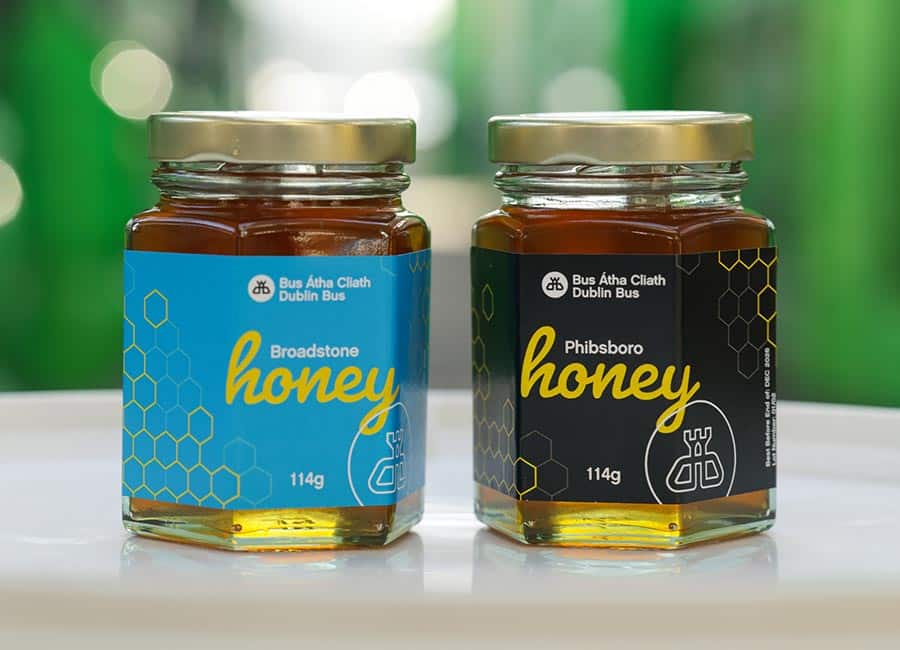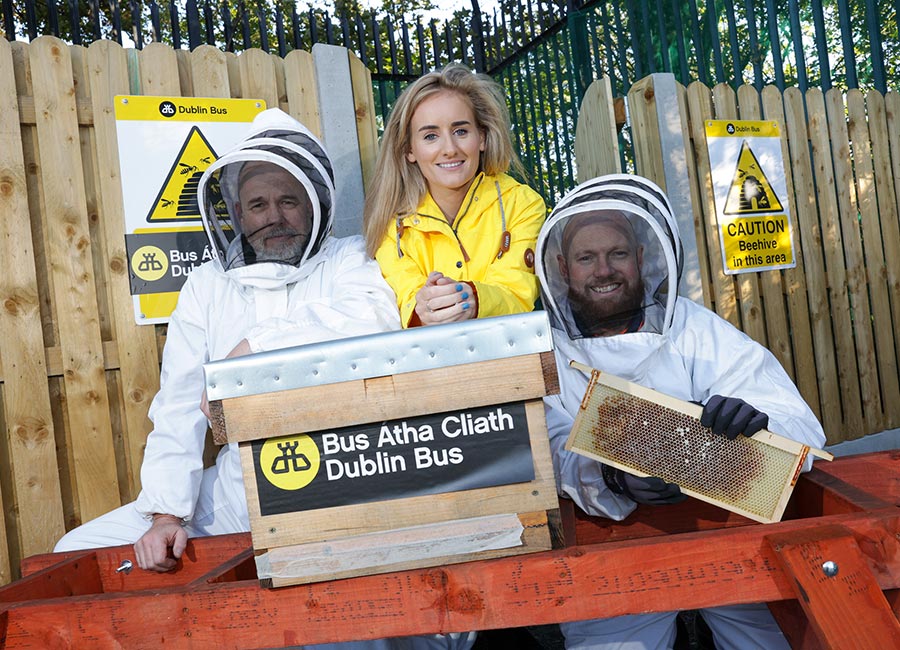A new Dublin Bus beehive has been installed at the company's Broadstone depot in Dublin 7 as part of the Dublin Buzz initiative to revive the dwindling population of Irish Black Bees in the capital.
The initiative was launched last year when an unused plot at Dublin Bus' Phibsborough depot was transformed into a hive to support natural biodiversity and combat the threat to the Black Bees due to hybridisation with non-native strains of honey bee.
The two depots will be home to some 20,000 bees during the winter months, rising to 150,000 bees in the summer.
Dublin Buzz was conceived by Dublin Bus mechanic and beekeeper Paul Granger, who wanted to put the land to good use and further the company's commitment to nurturing local biodiversity.
Beehives located in cities produced healthier and more productive bees, as urban bees have access to greater biodiversity which results in a more varied diet and stronger immune systems.
These bees travel around the city and visit wildflower gardens and flower boxes and bring nectar back to the depots to make honey. The honey is then used to feed the bees, with some left over for Dublin Bus employees to enjoy.
"After doing a beekeepers course and keeping my own hives at home, I wanted to bring my knowledge and passion to Dublin Bus where I have worked for over 20 years," Granger said.
"The interest peaked with my colleagues too and we have all now joined the North Kildare Beekeepers Association to keep our skills up to date and ensure we create safe environments for the bees to thrive at Phibsboro and Broadstone Depots.”

The Broadstone beehive has been launched to coincide with UN World Cities Day next Monday (31 October). The theme of the day is 'Act local to go global,' and it aims to highlight the fact that local action is critical to being able to achieve sustainable development goals by 2030.
Dublin Bus is calling for people to think about how they could become more sustainable by taking public transport this World Cities Day.
The company last year launched its Driving Change: Our Journey to Zero environmental report, setting out environmental targets in its drive to become a zero-emissions operator by 2035.
The report highlighted that a single bus replaces the equivalent of 80 cars and that the company takes up to 160,000 cars off the road each day. Its fleet produces 87% less emissions per person than car users.
Since 2017, Dublin Bus has reduced emissions by 13,500 tonnes, which equates to the weight of the entire bus fleet of 1,000 buses, and its fuel efficiency measures have reduced consumption of diesel by more than 2.5m litres per year.
Dublin Bus has also signed up to Business in the Community’s Low Carbon Pledge, has partnered with the SEAI on its Public Sector Energy Partnership programme and is a key part of the CIÉ Sustainability Strategy.
(Pic: Maxwells Photography)









